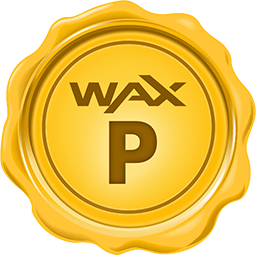-
 Bitcoin
Bitcoin $85,089.0315
0.57% -
 Ethereum
Ethereum $1,614.3774
1.33% -
 Tether USDt
Tether USDt $0.9999
0.00% -
 XRP
XRP $2.0829
0.00% -
 BNB
BNB $591.0001
-0.35% -
 Solana
Solana $138.5959
3.30% -
 USDC
USDC $0.9998
-0.01% -
 Dogecoin
Dogecoin $0.1571
-0.56% -
 TRON
TRON $0.2427
0.55% -
 Cardano
Cardano $0.6273
-0.03% -
 UNUS SED LEO
UNUS SED LEO $9.3086
0.78% -
 Chainlink
Chainlink $12.9396
2.40% -
 Avalanche
Avalanche $20.0467
4.62% -
 Stellar
Stellar $0.2476
2.61% -
 Toncoin
Toncoin $2.9577
-1.75% -
 Shiba Inu
Shiba Inu $0.0...01227
0.05% -
 Hedera
Hedera $0.1662
0.20% -
 Sui
Sui $2.1580
0.58% -
 Bitcoin Cash
Bitcoin Cash $334.1784
-2.37% -
 Hyperliquid
Hyperliquid $17.8310
6.21% -
 Polkadot
Polkadot $3.7857
2.37% -
 Litecoin
Litecoin $75.7246
-1.01% -
 Bitget Token
Bitget Token $4.5165
2.75% -
 Dai
Dai $0.9999
-0.01% -
 Ethena USDe
Ethena USDe $0.9992
-0.01% -
 Pi
Pi $0.6449
4.00% -
 Monero
Monero $211.6735
-2.16% -
 Uniswap
Uniswap $5.3092
2.24% -
 Pepe
Pepe $0.0...07367
1.39% -
 OKB
OKB $50.8291
0.56%
What is a protocol upgrade in a blockchain?
Protocol upgrades in blockchain networks, like Ethereum's shift to PoS or Bitcoin's SegWit, enhance performance and security but require careful consensus and planning.
Apr 19, 2025 at 11:07 pm

A protocol upgrade in a blockchain refers to the process of updating or modifying the underlying rules and functionalities of a blockchain network. This can involve changes to the consensus mechanism, transaction processing, smart contract capabilities, or other fundamental aspects of the blockchain. Protocol upgrades are essential for improving the performance, security, and features of a blockchain, ensuring that it remains competitive and adaptable to new technological advancements.
Types of Protocol Upgrades
There are primarily two types of protocol upgrades in blockchain networks: hard forks and soft forks. A hard fork is a significant change to the protocol that results in a permanent divergence from the previous version of the blockchain. Nodes that do not upgrade to the new version will no longer be part of the network. On the other hand, a soft fork is a backward-compatible upgrade where non-upgraded nodes can still participate in the network, albeit with limited functionality.
The Process of Implementing a Protocol Upgrade
Implementing a protocol upgrade involves several critical steps that require careful planning and execution. The process typically begins with proposal and discussion, where developers and stakeholders discuss the need for an upgrade and propose changes. This is followed by development and testing, where the proposed changes are coded and tested in a controlled environment to ensure they function as intended. Once the testing phase is complete, the deployment of the upgrade takes place, which can be executed through a hard fork or soft fork, depending on the nature of the changes. Finally, monitoring and maintenance are crucial to ensure the upgrade is functioning correctly and to address any issues that may arise.
Examples of Notable Protocol Upgrades
Several blockchain networks have undergone significant protocol upgrades that have had a profound impact on their functionality and adoption. One notable example is Ethereum's transition from Proof of Work (PoW) to Proof of Stake (PoS), known as Ethereum 2.0. This upgrade aims to improve the network's scalability, security, and energy efficiency. Another example is Bitcoin's Segregated Witness (SegWit) upgrade, which addressed transaction malleability issues and increased the block size limit, thereby enhancing the network's capacity to process more transactions.
Challenges and Considerations in Protocol Upgrades
Protocol upgrades, while beneficial, come with their own set of challenges and considerations. One major challenge is achieving consensus among network participants. Since blockchains are decentralized, getting all stakeholders to agree on the proposed changes can be difficult. Another consideration is backward compatibility, especially in the case of soft forks, where ensuring that non-upgraded nodes can still operate effectively is crucial. Additionally, security is a paramount concern, as any flaws in the upgrade could be exploited, potentially leading to network vulnerabilities.
The Role of Governance in Protocol Upgrades
Governance plays a crucial role in the successful implementation of protocol upgrades. Effective governance mechanisms help in facilitating discussions, reaching consensus, and ensuring transparency throughout the upgrade process. Different blockchains employ various governance models, ranging from on-chain voting systems to off-chain decision-making processes. For instance, Tezos uses a self-amending ledger that allows stakeholders to vote on proposed upgrades directly on the blockchain, making the process more democratic and streamlined.
Impact of Protocol Upgrades on Users and Developers
Protocol upgrades can have significant implications for both users and developers within a blockchain ecosystem. For users, upgrades can introduce new features, improve transaction speeds, and enhance security, thereby improving their overall experience. For developers, upgrades can open up new possibilities for building applications and smart contracts, as well as necessitate adjustments to existing codebases to ensure compatibility with the new protocol. It is essential for developers to stay informed about upcoming upgrades and to prepare their applications accordingly.
Frequently Asked Questions
Q: How can users prepare for a protocol upgrade?
A: Users can prepare for a protocol upgrade by staying informed about the proposed changes through official channels and community forums. They should also ensure that their wallets and nodes are updated to the latest version to avoid any disruptions during the upgrade process. Additionally, users should be aware of any new features or changes that may affect their transactions and adjust their activities accordingly.
Q: What happens if a node does not upgrade during a hard fork?
A: If a node does not upgrade during a hard fork, it will no longer be part of the upgraded blockchain network. Instead, it will continue to operate on the old version of the blockchain, effectively creating a new, separate blockchain. This can result in the node being unable to validate new blocks or process transactions on the upgraded network.
Q: Can protocol upgrades be reversed?
A: In most cases, protocol upgrades are designed to be permanent changes to the blockchain's rules and functionalities. Reversing a protocol upgrade, especially a hard fork, would require another hard fork to revert to the previous state, which can be complex and contentious. Soft forks, being backward-compatible, might be easier to reverse, but it would still require consensus among network participants.
Q: How do protocol upgrades affect the value of a cryptocurrency?
A: Protocol upgrades can have varying effects on the value of a cryptocurrency. Positive upgrades that improve the network's performance and security can increase investor confidence and drive up the value. Conversely, contentious upgrades or those that introduce uncertainty can lead to volatility and potential decreases in value. The impact on value largely depends on the perceived benefits and risks associated with the upgrade.
Disclaimer:info@kdj.com
The information provided is not trading advice. kdj.com does not assume any responsibility for any investments made based on the information provided in this article. Cryptocurrencies are highly volatile and it is highly recommended that you invest with caution after thorough research!
If you believe that the content used on this website infringes your copyright, please contact us immediately (info@kdj.com) and we will delete it promptly.
- Veteran Market Analyst Peter Brandt Has Issued a Gloomy Year-End Forecast for XRP
- 2025-04-20 03:35:13
- Cardano (ADA) Continues to Trade in a Narrow Band Below $0.63
- 2025-04-20 03:35:13
- A relentless storm brews over the digital ocean where cryptocurrencies like Bitcoin and Ethereum ride the waves.
- 2025-04-20 03:30:13
- Aptos Improvement Proposal 119 (AIP-119) Proposes to Slash Staking Rewards by Nearly 50%
- 2025-04-20 03:30:13
- Bitcoin (BTC) Price Still on Track to $200,000
- 2025-04-20 03:25:12
- How The Dogecoin Price Could Reach A New ATH By June
- 2025-04-20 03:25:12
Related knowledge
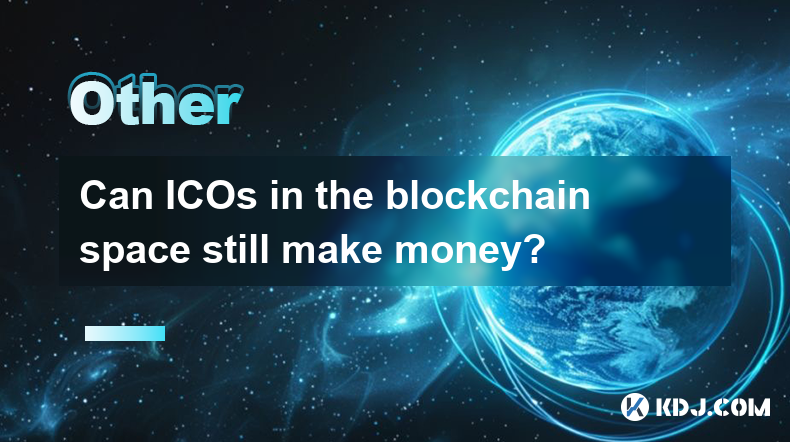
Can ICOs in the blockchain space still make money?
Apr 17,2025 at 08:29pm
The landscape of Initial Coin Offerings (ICOs) in the blockchain space has evolved significantly since their peak in 2017 and 2018. Despite the increased regulatory scrutiny and the rise of alternative fundraising methods like Security Token Offerings (STOs) and Initial Exchange Offerings (IEOs), ICOs can still be a viable way to raise funds and generat...
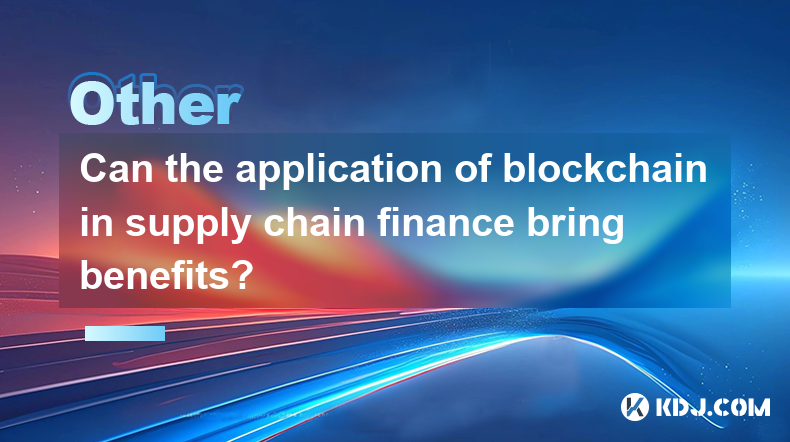
Can the application of blockchain in supply chain finance bring benefits?
Apr 15,2025 at 04:00pm
Can the application of blockchain in supply chain finance bring benefits? The integration of blockchain technology into supply chain finance has garnered significant attention in the cryptocurrency and financial sectors. This article explores how blockchain can potentially revolutionize supply chain finance, detailing its benefits and providing a compre...

Does the ranking of Chinese blockchain apps include cross-chain applications?
Apr 14,2025 at 04:00pm
The ranking of Chinese blockchain apps is a comprehensive evaluation that takes into account various aspects such as user base, transaction volume, and technological innovation. A pertinent question arises regarding whether these rankings include cross-chain applications. Cross-chain applications, which allow different blockchain networks to interact an...
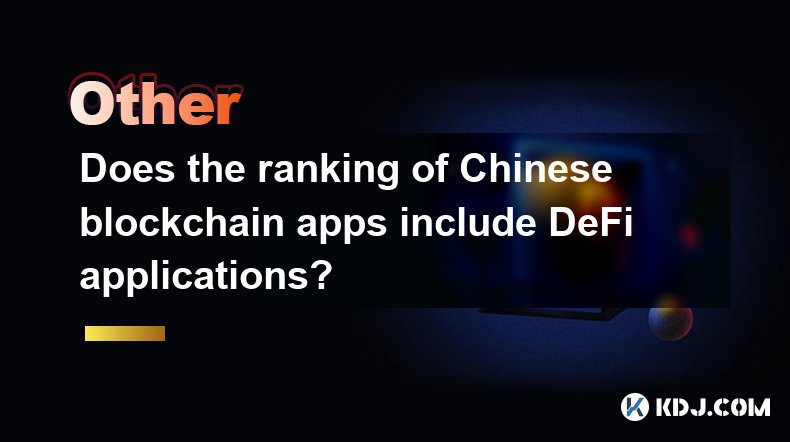
Does the ranking of Chinese blockchain apps include DeFi applications?
Apr 15,2025 at 06:57am
The ranking of Chinese blockchain apps is a comprehensive list that showcases the most popular and influential applications within the cryptocurrency ecosystem. One question that often arises is whether these rankings include DeFi applications. To answer this, we need to delve into the specifics of how these rankings are compiled and what types of appli...
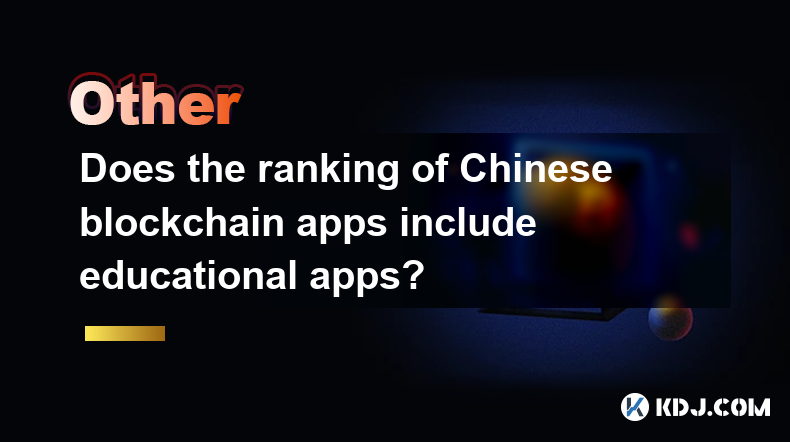
Does the ranking of Chinese blockchain apps include educational apps?
Apr 16,2025 at 03:35am
The ranking of Chinese blockchain apps often includes a variety of categories, from finance and gaming to social networking and beyond. One question that frequently arises is whether these rankings include educational apps. To address this, we need to delve into the specifics of how blockchain apps are categorized and ranked in China, and whether educat...
Does the ranking of Chinese blockchain apps include enterprise-level applications?
Apr 15,2025 at 06:42am
The ranking of Chinese blockchain apps often includes a variety of applications, ranging from consumer-focused to enterprise-level solutions. Understanding the scope and criteria for these rankings is essential to determine if enterprise-level applications are included. This article delves into the specifics of how Chinese blockchain app rankings are co...

Can ICOs in the blockchain space still make money?
Apr 17,2025 at 08:29pm
The landscape of Initial Coin Offerings (ICOs) in the blockchain space has evolved significantly since their peak in 2017 and 2018. Despite the increased regulatory scrutiny and the rise of alternative fundraising methods like Security Token Offerings (STOs) and Initial Exchange Offerings (IEOs), ICOs can still be a viable way to raise funds and generat...

Can the application of blockchain in supply chain finance bring benefits?
Apr 15,2025 at 04:00pm
Can the application of blockchain in supply chain finance bring benefits? The integration of blockchain technology into supply chain finance has garnered significant attention in the cryptocurrency and financial sectors. This article explores how blockchain can potentially revolutionize supply chain finance, detailing its benefits and providing a compre...

Does the ranking of Chinese blockchain apps include cross-chain applications?
Apr 14,2025 at 04:00pm
The ranking of Chinese blockchain apps is a comprehensive evaluation that takes into account various aspects such as user base, transaction volume, and technological innovation. A pertinent question arises regarding whether these rankings include cross-chain applications. Cross-chain applications, which allow different blockchain networks to interact an...

Does the ranking of Chinese blockchain apps include DeFi applications?
Apr 15,2025 at 06:57am
The ranking of Chinese blockchain apps is a comprehensive list that showcases the most popular and influential applications within the cryptocurrency ecosystem. One question that often arises is whether these rankings include DeFi applications. To answer this, we need to delve into the specifics of how these rankings are compiled and what types of appli...

Does the ranking of Chinese blockchain apps include educational apps?
Apr 16,2025 at 03:35am
The ranking of Chinese blockchain apps often includes a variety of categories, from finance and gaming to social networking and beyond. One question that frequently arises is whether these rankings include educational apps. To address this, we need to delve into the specifics of how blockchain apps are categorized and ranked in China, and whether educat...

Does the ranking of Chinese blockchain apps include enterprise-level applications?
Apr 15,2025 at 06:42am
The ranking of Chinese blockchain apps often includes a variety of applications, ranging from consumer-focused to enterprise-level solutions. Understanding the scope and criteria for these rankings is essential to determine if enterprise-level applications are included. This article delves into the specifics of how Chinese blockchain app rankings are co...
See all articles




















































































